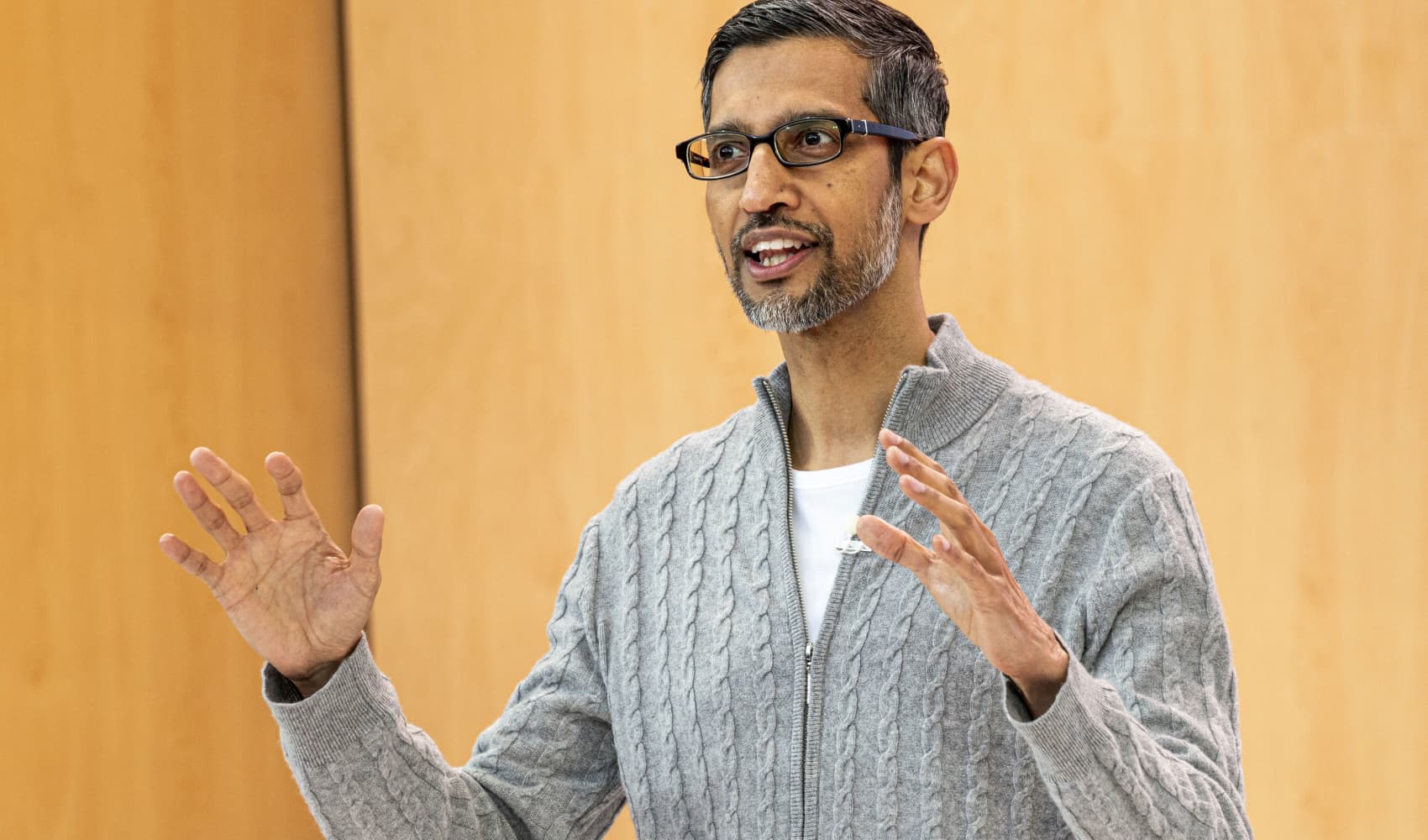
- "To be honest, what concerns me more is the lack of control from humans, who are still making wars after 2,000 years," Leonardo CEO Roberto Cingolani told CNBC's "Squawk Box Europe" on Friday.
- AI advocates say the technology can be harnessed to benefit humanity in several ways, including fast-tracking patient diagnoses, modeling climate change and fighting cyberattacks.
- The International Monetary Fund said in a report published Jan. 14 that nearly 40% of jobs worldwide could be affected by the rise of AI.
The chief executive of Italian defense group Leonardo said Friday that he's more concerned about the "stupidity" of users of artificial intelligence rather than the threats posed by the technology itself.
His comments come amid repeated warnings about the dangers of AI, with U.N. Secretary-General António Guterres recently calling on international political and business leaders to prioritize a global strategy to deal with the technology.
Speaking at the World Economic Forum in Davos, Switzerland, in January, Guterres said the rapid development of AI could result in "serious unintended consequences."
Get New England news, weather forecasts and entertainment stories to your inbox. Sign up for NECN newsletters.
"To be honest, what concerns me more is the lack of control from humans, who are still making wars after 2,000 years," Roberto Cingolani, CEO of Leonardo, told CNBC's "Squawk Box Europe" on Friday.
"With this in mind, artificial intelligence is a tool. It is an algorithm made by humans, that is run by computers made by humans, that controls machines made by humans. I am more afraid, more worried [about] national stupidity than artificial intelligence to be honest," he added.
"I have a scientific background, so I definitely consider technology as neutral. The problem is the user, not the technology itself."
Money Report
AI advocates say the technology can be harnessed to benefit humanity in several ways, including fast-tracking patient diagnoses, helping to model climate change and fighting cyberattacks.
However, the International Monetary Fund said in a report published Jan. 14 that nearly 40% of jobs worldwide could be affected by the rise of AI.
The Washington, D.C.-based institution also warned that the potential impact of the technology on the global labor market is likely to worsen overall inequality in most cases.
Cingolani said that defense companies such as Leonardo must make a "big effort" to introduce a "massive digitalization" of their platforms, including providing autonomous systems and services that are AI powered.
"It is a complete change of paradigm. It is really a different technological approach to defense and security. It is a big technology challenge," he added.
Shares of Leonardo rose more than 4% around 8:48 a.m. London time on Friday. The Milan-listed stock is up more than 37% year to date.






